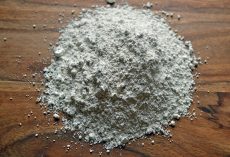Pet experts say a fatty meat-based diet does not necessarily nurture aggression in a dog. The real problem is tryptophan deficiency. There are also other nutritional factors, including inadequate amino acid consumption.
Omega-3 Fats May Help Relieve Anxiety in Dogs
If your dog suffers from anxiety, be sure he is consuming a high-quality source of omega-3 fats. These fats have antioxidant and anti-inflammatory properties while also modulating neurotransmitters and neuroplasticity in the brain.
When researchers pitted the omega-3 fat eicosapentaenoic acid (EPA) against the antidepressant drug fluoxetine (brand name Prozac), EPA was just as effective as the drug in relieving symptoms of depression in humans — and the same may be true in dogs as well.
Research involving 24 dogs, conducted by McGowan and colleagues, found increased intake of omega-3 fats had a calming effect on anxious dogs and led to improvements in behavior.
Clinical studies show that omega-3s are helpful in treating many disorders in dogs and cats, including heart and kidney disease, inflammatory skin conditions and arthritis, as well as boosting cognitive function.
It's a good idea for virtually all pets to eat a diet rich in omega-3s, so any behavioral improvements are the icing on the cake.
How Much Omega-3 Should You Feed Your Pet?
If you feed your pet a commercial diet, there's a good chance he's deficient in omega-3 fats. It's very common. In addition to anxiety, omega-3-deficient animals may struggle with dry skin, chronic inflammation (mouth, ears, or paws) or recurrent skin and ear infections (decreased immune function).
To boost his intake, you can feed your pet sardines packed in water or wild-caught salmon. I recommend all marine oils be verified to be sustainably sourced and toxin-free.
If your pet is currently in good health but has symptoms of omega-3 deficiency, I recommend supplementing as follows. Capsule or airless pump form is preferable to pourable oils, as the latter may easily turn rancid:
•250 milligrams (mg) daily for toy breeds and cats (1 to 14 pounds)
•500 mg daily for small dogs (15 to 29 pounds)
•1,000 mg daily for medium dogs (30 to 49 pounds)
•1,500 mg daily for large dogs (50 to 79 pounds)
•2,000 mg daily for dogs 80 pounds and above
And, of course, there are other factors. Read about them over on Healthy Pets. They include the reduction of dog anxiety via the Gut-Brain Axis, probiotics, a species-appropriate diet and herbs and nutraceuticals!
Loving our dogs does not mean we have to tolerate anxiety – especially when there are things we can do about it!










Jenny Pitts
- Edit
How could any one take a pug to a shelter. Give one to me and I will help it get better.
Andres Vega De Jesús
- Edit
Ariana Cebollero